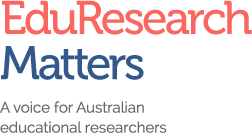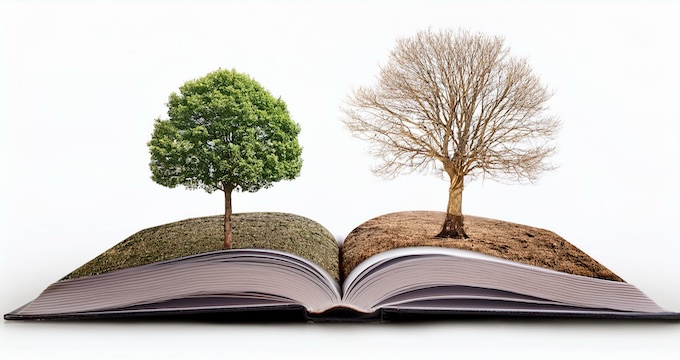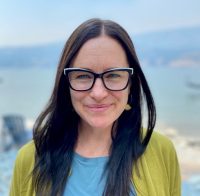Prime Minister Anthony Albanese confirmed that if he was re-elected, his party would formally bid for South Australia to host a future International Climate Change Conference in partnership with Pacific Nations.
The recent re-election of the Albanese Labor government in Australia, with a substantial majority in the House of Representatives, marks a pivotal moment for climate policy and education reform. As we at the SWISP Lab (Coleman & Healy) reflect on this outcome, we see a unique opportunity to advance climate education and push for transformative changes in our approach to teaching and learning in the Anthropocene.
The COP31 Opportunity
With Australia’s bid to host COP31 in Adelaide in November 2026, we stand at a critical juncture. This summit presents an unprecedented platform for Australia to:
- Demonstrate climate leadership on the global stage
- Respond to regional calls for greater climate ambition, particularly from our Pacific neighbours
- Accelerate domestic climate policy reforms
To fully realise the promise of COP31, Australia must look beyond policy and infrastructure. It must also invest in cultural and educational transformation. As the climate crisis deepens, the role of education becomes increasingly urgent. This is where SWISP Lab sees a vital opportunity: to align climate action with educational reform that equips the next generation; not just with knowledge, but with the imaginative, ethical, and practical capacities to navigate and shape adaptation and mitigation in a complicated global context.
Educational Reform: A SWISP Lab Perspective
At SWISP Lab, we believe that teacher education in the Anthropocene is central to environmental justice and climate education. Our research indicates that we must reimagine teacher education to prepare educators who can foster multiple futures where children, youth, and families can thrive amidst environmental challenges.
To advocate for justice, SWISP Lab’s philosophy of learner agency and world-centred design, not just in visual arts and design education, but in the core skills of praxis through visual literacy, climate literacy, critical and creative thinking, and digital innovation address environmental inequalities and empower educators to advocate for justice.
As we advocate for educational reform in the context of climate change and COP31, it’s crucial to align our efforts with Australia’s National Cultural Policy, REVIVE. This policy provides a framework that complements and enhances our vision for climate education in partnership with the Asia Pacific Universities Alliance (APUA) COP31 Briefing. As a result, SWISP lab calls on the Australian government, educational institutions, and the broader community to:
1. Invest in Comprehensive Climate Change Education:
o Develop and implement climate education programs at all levels of schooling, aligning with the APUA’s emphasis on “building capacity and capability.”
o Support teacher education programs that emphasise creative climate communication, social justice, environmental justice and creative climate pedagogies.
o Ensure climate change education reflects diverse Australian experiences and perspectives.
o Integrate Indigenous knowledge and perspectives into climate education curricula.
2. Foster Multi-Sited Partnerships:
o Create collaborative networks between educational institutions, climate scientists, artists, data specialists, community organisations, and industry partners.
o Align with the APUA’s recommendation to “leverage the collective expertise of universities” in addressing climate challenges.
3. Integrate Indigenous Knowledge:
o Incorporate First Nations’ perspectives, Land pedagogies and knowledge systems into climate education curriculum.
o Support First Nations-led educational initiatives that combine traditional knowledge with contemporary climate science.
o Support the APUA’s call to “recognise and respect Indigenous knowledge” in climate action strategies.
4. Promote Interdisciplinary Research and Education on climate change:
o Develop interdisciplinary curricula that integrate speculative thinking and critical inquiry about the Anthropocene across disciplines.
o Align with the APUA’s emphasis on “interdisciplinary and transdisciplinary approaches” to climate challenges.
5. Prioritise Arts and Design in Creative Climate Education:
o Retain and expand art and design teacher education programs to nurture creativity and interdisciplinary thinking.
o Develop climate education programs that incorporate artistic and cultural elements, aligning with REVIVE’s emphasis on creativity.
o Create partnerships between educational institutions and cultural organisations to enhance climate literacy through arts and culture.
o Encourage the development of climate-themed artistic works and cultural events as educational tools.
o Develop pedagogical responses to shifts in local Land-technology-human relations.
o Support the development of innovative communication strategies for climate action, as highlighted in the APUA briefing.
6. Enhance Regional Collaboration on climate change:
o Develop educational exchange programs and collaborative research initiatives with Asia-Pacific partners.
o Invest in digital infrastructure across regional and Asia-Pacific schools that allows for innovative, engaging climate education experiences and connection.
o Support the APUA’s call for “regional cooperation and knowledge sharing” in addressing climate challenges.
7. Link Education to Policy and Action in climate change:
o Create pathways for students and educators to engage directly with policymakers and contribute to climate policy development.
o Equip pre-service teachers with the tools to recognise injustice and advocate for social, cultural, racial, economic and environmental equity.
o Align with the APUA’s recommendation to “bridge the gap between research, policy, and action.”
8. Foster Climate Data Literacy and Engagement using Revive – A New National Cultural Policy 2024 Pillars:
o First Nations First: Centre First Nations data sovereignty and ecological knowledges to ensure climate data literacy is grounded in deep time, Country, and custodianship.
o A Place for Every Story: Foster inclusive climate narratives by equipping all Australians to critically engage with, interpret, and share data-driven stories of environmental change.
o Centrality of the Educator and Artist: Empower educators and artists as key translators of climate data, making complex information accessible, affective, and action-oriented through creative practice.
o Robust Data Infrastructure for Culture: Invest in the tools, platforms, and protocols that enable open, ethical, and creative engagement with climate and environmental data across education and the arts.
o Engaging Audiences through Data Storytelling: Support compelling and participatory forms of climate data storytelling that resonate locally and globally, building public understanding and motivating collective action.
9. Invest in Climate-Resilient Infrastructure:
o Support the development of climate-resilient educational facilities and campuses.
o Utilise cultural institutions as hubs for climate education and action.
o Contribute to the APUA’s goal of “developing climate-resilient infrastructure” through educational initiatives and research.
10. Promote Climate Finance Literacy:
o Integrate climate finance education into relevant critical and creative curriculum to support the APUA’s emphasis on “mobilising climate finance.”
o Develop programs that prepare students to engage with and innovate in the green economy.
11. Advocate for a ‘Whole-of-Society’ Approach on climate change:
o Encourage educational institutions to lead by example in climate change practices.
o Implement creative research methodologies that develop teachers and student’s climate languages and literacies to be agents of change.
o Support interdisciplinary collaborations between artists, scientists, and educators.
o Support the APUA’s call for a “whole-of-society approach” to climate action through educational outreach and community engagement.
The rejection of the Coalition’s nuclear-over-renewables policy signals a public mandate for progressive climate action. This political landscape provides fertile ground for educational reform that aligns with the urgency of our climate crisis.
Call to Action
As we approach COP31, we call on the Australian government and educational institutions to:
- Invest in comprehensive climate education programs for all levels of schooling that incorporate artistic and cultural elements, aligning with REVIVE’s emphasis on creativity.
- Support teacher education programs that emphasize environmental justice and creative climate pedagogies.
- Foster partnerships between educational institutions, climate scientists, and community organizations.
- Develop curricula that integrate speculative thinking and critical inquiry about the Anthropocene.
- Prioritise the retention and expansion of art and design teacher education programs to nurture creativity and interdisciplinary thinking.
The Anthropocene can and should be integrated and embedded into all subjects in teacher education and in turn school-based learning, emphasising the importance of an interdisciplinary approach. The Anthropocene encourages creative and critical thinking about being in the world, politics, society, culture, colonisation, language, economy, human-land-technology relations, justice, ecosystems, life on Earth, ethics, and sustainability.
Seize the moment
The Labor government’s re-election and the potential hosting of COP31 provide a unique moment to redefine Australia’s role in climate action and education. At SWISP Lab, we stand ready to contribute our research and methodologies to this vital cause. Embracing transformative educational practices can prepare the next generation to navigate and shape our climate future with creativity, critical thinking, and a commitment to justice.
By aligning our educational reform efforts with REVIVE, we can create a more holistic, culturally rich approach to climate education. This integration of culture, arts, and climate action will not only enhance our educational outcomes but also contribute to a more resilient, creative, and sustainable Australia as we approach COP31 and beyond.
This blog post is a call to action from SWISP Lab in the Faculty of Education, University of Melbourne advocating for educational reform considering Australia’s recent election results and the potential hosting of COP31. We invite educators, policymakers, and climate activists to join us in this crucial conversation about the future of education in the Anthropocene.

Kate Coleman (right) is an associate professor in the Faculty of Education, University of Melbourne and co-lead of SWISP Lab with Sarah Healy. Kate is the current President of Art Education Australia and a CI on Learning with the Land SSHRC project. Sarah Healy (left) is a lecturer in the Faculty of Education, University of Melbourne and co-lead of SWISP Lab with Kate Coleman. Sarah serves as a World Councillor for the International Society for Education through Art (2023–2025).











